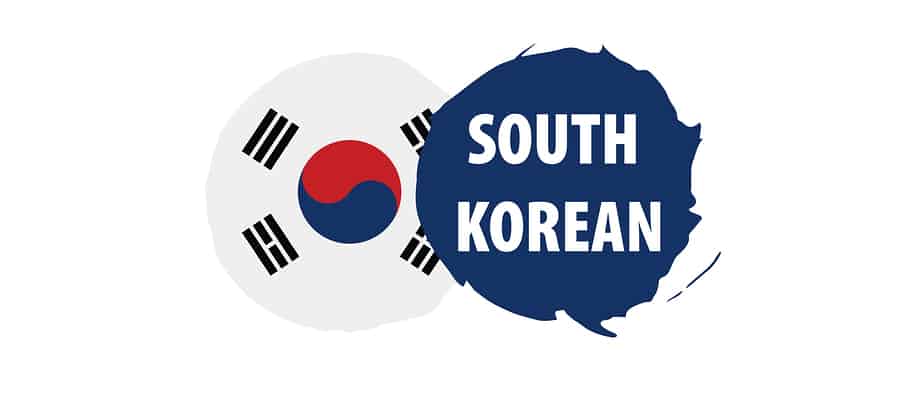Guide to South Korean Culture, Customs, and Language
Welcome to South Korea!
Is South Korea somewhat of a paradox? Perhaps, but if you were to visit the country, assuming you had mastered at least a smattering of the Korean language, of course, you would find that most Koreans are just like anyone else around the world in any highly urbanized society. As for the Korean language and culture getting international recognition, one can point to the number of Oscars that the Korean language film, “Parasite,” has just won.
Facts About South Korean Culture
South Korea has been transformed from a largely rural society before the Korean war of the 1950s into a highly industrialized and urbanized society today. South Koreans have retained much of their old traditional South Korean culture and traditions, but are also largely a modern urban society that has taken on many aspects of culture from around the western world as well as quite a number of words borrowed from other languages. To give an idea of just what makes South Koreans tick, here are 10 facts about South Korean culture.
- South Korean writing is unique. Nowhere else in the world uses the same alphabet.
- Because Korean as a language is spoken nowhere else apart from in Korean expatriate communities, Koreans are heavily dependent on professional Korean language translators to communicate effectively with the rest of the world. Korean students go and study in large numbers all over the world, especially in the English language-dominated schools, colleges, and universities.
- South Korean greetings are taken very seriously. Respect for family, especially elders, is still very important in South Korea. South Koreans are generally rather reserved around strangers. They may use bows and handshakes when meeting others, but do not particularly like much open expression of emotion or physical contact.
- South Korean religions are not as obvious as they are in some other countries. Buddhism, Taoism, Confucianism, and Christianity are all followed and there is a lot of religious tolerance in the country as well as laws that protect religious freedom.
- South Korean culture, like many other highly urban societies, is less obvious today than in the first part of the twentieth century when most Koreans lived in rural areas.
- South Koreans like their food. Eating out, like in many other Asian countries, is very popular. Kimchi is one of the best-known traditional Korean food specialties.
- South Korea has hosted the Summer Olympic Games once (in 1988) and the winter Games also once in PyeongChang in 2018. Baseball and soccer are probably the most popular team sports. South Koreans take their national soccer team’s performance very seriously during the run-up to the World Cup.
- The most well-known Korean traditional sport is tae-kwon-do, which has been introduced as a martial art around the world.
- South Korean business culture is heavily family-based and hierarchical. The Korean government has an important influence on Korean business, which is dominated by a number of large corporations.
- Most South Koreans live in high-rise buildings in major cities like Seoul, Incheon, and Pusan.
Language in South Korea
The South Korean official language is, of course, Korean. It is also the language of South Korea’s northern neighbor, North Korea, with which technically it is still on a war footing, an oddity that has been in force since the end of the Korean War and partitions back in the 1950s. The South Korean language is also spoken wherever Koreans have migrated to. That includes parts of China, Japan, and many other countries where there are significant Korean expatriate communities. Korean has some similarities to other Asian languages, such as Turkish, Vietnamese, Chinese, and Japanese, but generally is so different that Koreans cannot make themselves understood in their own language anywhere else apart from Korea or amongst Korean speakers.
The South Korean language is written in its own style of writing, known as Hangul. The written language once used Chinese characters, especially during the many centuries when Korea was effectively under the control of Chinese dynasties. Koreans eventually developed the Hangul script in the middle of the fifteenth century and this has persisted until today.
Customs and Etiquette in South Korea
One of the most obvious features of South Korean customs and traditions is that the country’s 40 million-odd people are remarkably homogeneous. There is a much smaller number of people who live in the country who were born elsewhere. The differences in culture have more to do with differences between conservative rural village life and the big cities where most Koreans live and between young and old.
South Korean families tend to be fairly conservative and patriarchal, although the country’s laws protect women’s rights. South Koreans are often perceived as rather reserved and formal, although this is something that is a feature of the attitude and South Korean etiquette when communicating with anyone who is not family.
South Korean traditions and customs include art, crafts, cooking, and clothing. They are best seen preserved in rural village life. For example, most urban Koreans watch TV, use cell phones, have Facebook accounts and wear typical western clothing!



